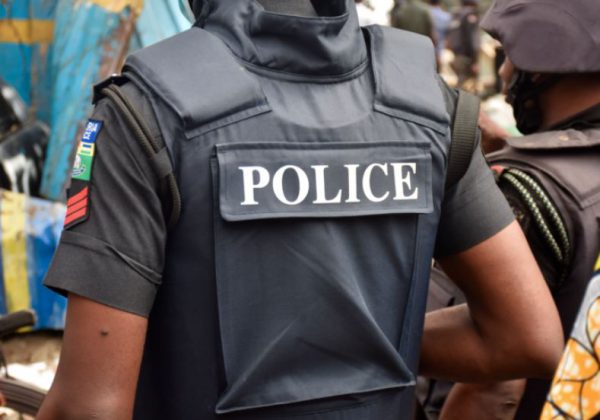More than 500,000 security guards to guard the voting booths
Independent National Electoral Commission Chairman Mahmood Yakubu revealed on Tuesday that 530,538 security personnel would be deployed for the upcoming general elections.
He explained that the commission needed 1,265,227 external officials ahead of the 2023 elections, adding that it had completed 11 of the 14 activities in its schedule for the fiscal year.
Security personnel, who will man the polling stations, will include police officers and personnel from the Nigeria Security and Civil Defense Corps.
It is as the Senate said that the electorate had no excuse regarding the required credibility of the upcoming general election because the upper house had met all the requirements of the commission.
But speaking at Chatham House, London, UK, INEC Chairman in his presentation titled "Elections 2023 in Nigeria: Preparations and Priorities for Integrity and Inclusion elections", allayed fears, stressing that the election would take place as planned.
To this end, he revealed that 707,384 presiding officers and 17,685 presiding officers and 9,620 tellers would support the polling stations, making a total of 1,265,227.< /p>
Yakubu said, "For the 2023 general election, the commission needs at least 707,384 chairpersons and deputy chairpersons, approximately 17,685 supervising chairpersons, 9,620 scrutineers as well as 530,538 security of polling stations, making a total of 1,265,227.
"They are not commission staff and must be carefully recruited and trained to ensure they are both responsive and non-partisan.
“However, the largest number of election officials in Nigeria are those temporary or ad hoc staff recruited mainly from young Nigerian university and polytechnic graduates enrolled in the compulsory one-year National Youth Service Corps, students at institutions of higher learning, staff at federal agencies, and college professors. Properly preparing them for their roles as election officials, supervisors and results managers is essential for a successful election.’’
Speaking further, the INEC boss said issues such as the security challenge and attacks on its assets were beyond the powers of the commission, noting however that it attacked vote buying or voter bribery by political parties and candidates.
Yakubu observed that insecurity across the country posed a major threat to the security of credible elections, adding that the violence made it difficult to deploy for the elections, especially when some of the attacks targeted the electoral process and the participants.< /p>
The commission said it has worked with security agencies and other stakeholders to establish mechanisms to understand, track and mitigate security issues.
"We work collaboratively through ICCES and we also have the Election Violence Mitigation and Advocacy Tool, which is a research and diagnostic tool to predict and mitigating electoral violence ahead of elections. In addition, there is the Election Risk Management Tool, which tracks and flags general election-related risks.
Security Agencies
“Overall, we feel reassured by the actions we have taken and our collaboration with the security agencies. The 2023 general elections will take place as scheduled. There are no plans to postpone the election. A more relevant issue for the commission is the fate of displaced voters,” Yakubu said.
The INEC boss argued that elections may not be held in areas of displacement, noting that despite this challenge, the commission had since 2015 put in place a policy and framework for the vote of displaced persons.
He added: "If they are organized in camps, we can recreate the polling stations and allow them to vote. This was done in 2015 and 2019 and it was only recently that we convened a meeting with stakeholders to validate the revised framework and IDP voting policy.
“The difficulty we face is with those who do not live in IDP camps, but live with relatives in safer communities. It becomes difficult to organize elections for them.
"We have over two million people in displacement camps in several states and we will hold elections for them as we did in 2015 and 2019."
Yakubu said the amended electoral law would, among other things, reduce the challenge the commission faces in the area of inconclusive elections, as the ballot is now defined in terms of accredited voters and not registered.
He also told his audience that the law empowers the commission to review the election results to ensure statements are accurate.

Independent National Electoral Commission Chairman Mahmood Yakubu revealed on Tuesday that 530,538 security personnel would be deployed for the upcoming general elections.
He explained that the commission needed 1,265,227 external officials ahead of the 2023 elections, adding that it had completed 11 of the 14 activities in its schedule for the fiscal year.
Security personnel, who will man the polling stations, will include police officers and personnel from the Nigeria Security and Civil Defense Corps.
It is as the Senate said that the electorate had no excuse regarding the required credibility of the upcoming general election because the upper house had met all the requirements of the commission.
But speaking at Chatham House, London, UK, INEC Chairman in his presentation titled "Elections 2023 in Nigeria: Preparations and Priorities for Integrity and Inclusion elections", allayed fears, stressing that the election would take place as planned.
To this end, he revealed that 707,384 presiding officers and 17,685 presiding officers and 9,620 tellers would support the polling stations, making a total of 1,265,227.< /p>
Yakubu said, "For the 2023 general election, the commission needs at least 707,384 chairpersons and deputy chairpersons, approximately 17,685 supervising chairpersons, 9,620 scrutineers as well as 530,538 security of polling stations, making a total of 1,265,227.
"They are not commission staff and must be carefully recruited and trained to ensure they are both responsive and non-partisan.
“However, the largest number of election officials in Nigeria are those temporary or ad hoc staff recruited mainly from young Nigerian university and polytechnic graduates enrolled in the compulsory one-year National Youth Service Corps, students at institutions of higher learning, staff at federal agencies, and college professors. Properly preparing them for their roles as election officials, supervisors and results managers is essential for a successful election.’’
Speaking further, the INEC boss said issues such as the security challenge and attacks on its assets were beyond the powers of the commission, noting however that it attacked vote buying or voter bribery by political parties and candidates.
Yakubu observed that insecurity across the country posed a major threat to the security of credible elections, adding that the violence made it difficult to deploy for the elections, especially when some of the attacks targeted the electoral process and the participants.< /p>
The commission said it has worked with security agencies and other stakeholders to establish mechanisms to understand, track and mitigate security issues.
"We work collaboratively through ICCES and we also have the Election Violence Mitigation and Advocacy Tool, which is a research and diagnostic tool to predict and mitigating electoral violence ahead of elections. In addition, there is the Election Risk Management Tool, which tracks and flags general election-related risks.
Security Agencies
“Overall, we feel reassured by the actions we have taken and our collaboration with the security agencies. The 2023 general elections will take place as scheduled. There are no plans to postpone the election. A more relevant issue for the commission is the fate of displaced voters,” Yakubu said.
The INEC boss argued that elections may not be held in areas of displacement, noting that despite this challenge, the commission had since 2015 put in place a policy and framework for the vote of displaced persons.
He added: "If they are organized in camps, we can recreate the polling stations and allow them to vote. This was done in 2015 and 2019 and it was only recently that we convened a meeting with stakeholders to validate the revised framework and IDP voting policy.
“The difficulty we face is with those who do not live in IDP camps, but live with relatives in safer communities. It becomes difficult to organize elections for them.
"We have over two million people in displacement camps in several states and we will hold elections for them as we did in 2015 and 2019."
Yakubu said the amended electoral law would, among other things, reduce the challenge the commission faces in the area of inconclusive elections, as the ballot is now defined in terms of accredited voters and not registered.
He also told his audience that the law empowers the commission to review the election results to ensure statements are accurate.
What's Your Reaction?






















